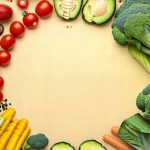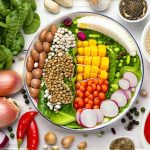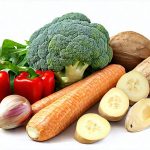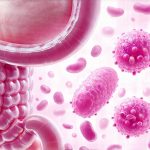Constipation is an incredibly common digestive issue that affects people of all ages. It’s often characterized by infrequent bowel movements or difficulty passing stool, leading to discomfort, bloating, and even pain. While occasional constipation isn’t usually serious, chronic constipation can significantly impact your quality of life. Many factors contribute to this condition – diet being a major one! A thoughtfully planned diet focusing on fiber-rich foods, adequate hydration, and mindful eating habits can often provide significant relief and restore regular bowel function. This article will explore a practical diet plan designed to combat constipation naturally and help you feel more comfortable and healthy.
It’s important to understand that ‘regularity’ varies from person to person; there isn’t a one-size-fits-all answer. However, generally speaking, having a bowel movement anywhere between three times a day to three times a week is considered normal. Constipation occurs when this pattern noticeably changes and causes distress. Before making drastic dietary changes, it’s helpful to identify potential triggers – are you stressed? Have you recently changed your diet or travel routine? Understanding the ‘why’ behind your constipation can help tailor the plan even more effectively.
The Foundation: Fiber-Rich Foods
Fiber is arguably the most important component of a constipation-relief diet. It adds bulk to stool, making it easier to pass, and also helps stimulate the muscles in your digestive tract. However, simply adding fiber isn’t enough; you need to choose the right types of fiber and increase your intake gradually. There are two main types: soluble and insoluble. Soluble fiber dissolves in water forming a gel-like substance that softens stool. Insoluble fiber doesn’t dissolve but adds bulk. A healthy diet incorporates both!
Excellent sources of soluble fiber include oats, barley, lentils, apples, pears, and citrus fruits. For insoluble fiber, focus on whole wheat bread, bran cereals, vegetables like broccoli and carrots, and nuts & seeds. Aim to incorporate a variety of these foods into your daily meals. Don’t underestimate the power of berries; they are packed with fiber and antioxidants! Remember to increase your fluid intake alongside increased fiber consumption to prevent further constipation – it’s a crucial partnership.
Hydration is Key: Beyond Just Water
While fiber gets much of the attention, adequate hydration is absolutely essential for relieving and preventing constipation. Water helps soften stool and allows fiber to work effectively. Many people unknowingly walk around mildly dehydrated, which can significantly contribute to digestive issues. Don’t wait until you feel thirsty to drink; sip water throughout the day.
Beyond plain water, consider incorporating hydrating foods into your diet. Fruits like watermelon, cucumbers, and celery have high water content. Herbal teas (ginger or peppermint are excellent choices) can also contribute to hydration and may even aid digestion. Avoid sugary drinks and excessive caffeine, as these can sometimes worsen dehydration. A good goal is around eight glasses of water daily, but individual needs vary based on activity level and climate.
Probiotic Power: Gut Health Connection
A healthy gut microbiome plays a vital role in digestive health, including preventing constipation. Probiotics are beneficial bacteria that live in your gut and help regulate digestion. Incorporating probiotic-rich foods into your diet can significantly improve bowel regularity. Fermented foods are excellent sources of probiotics!
Think yogurt (with live active cultures), kefir, sauerkraut, kimchi, kombucha, and miso. If you struggle with incorporating these foods regularly, consider a probiotic supplement after consulting with a healthcare professional to determine the best strain for your needs. Remember that introducing probiotics is often most effective when paired with prebiotic-rich foods – these ‘feed’ the good bacteria in your gut (think garlic, onions, bananas, and asparagus).
Foods to Limit or Avoid
While focusing on what to eat is important, it’s equally crucial to identify foods that can potentially worsen constipation. Highly processed foods, fast food, and those low in fiber should be limited. These often lack the nutrients needed for healthy digestion. Similarly, excessive amounts of red meat and dairy products can sometimes contribute to slower digestive transit time.
Certain foods are known to be constipating for some individuals – bananas (unripe), white rice, pasta made with white flour, and chocolate are a few examples. Pay attention to how your body reacts after eating certain foods and adjust accordingly. It’s about finding what works best for you.
Ultimately, easing constipation is often about making small, sustainable changes to your diet and lifestyle. This isn’t about strict restrictions or deprivation; it’s about nourishing your body with the right foods and habits to support optimal digestive health. Consistency is key – a one-time fiber boost won’t solve the problem long-term.


















